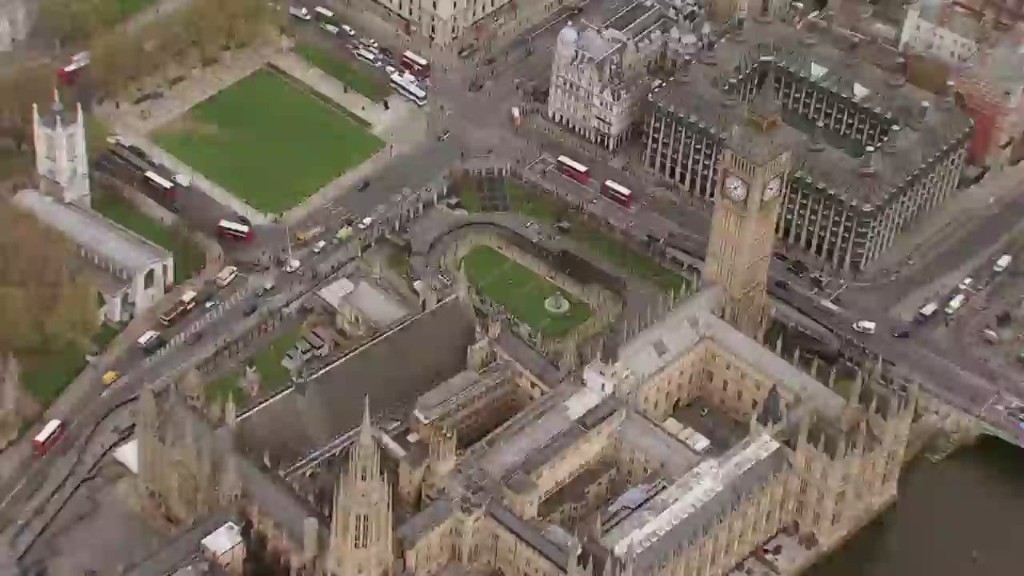
The British economy is booming. Or is it?
With the U.K. election just weeks away, the government is boasting about the recovery. But listen to the opposition and you would think people are barely coping.
What do the facts say? GDP is growing, employment is at a record high, and consumers are the most confident they've been for 12 years. Interest rates are at record lows, and tumbling oil prices have wiped out inflation.
But the economic sweet spot is still not being felt by many people. This could be why:
A slow recovery
Conservative Chancellor George Osborne says Britain is "walking tall again," having left the recession behind. At first glance, the numbers support his statement. The U.K. economy grew by 2.8% in 2014. That's faster than any other major developed country, and double the European Union average of 1.4%.
This looks good on paper, but researchers from the Institute of Fiscal Studies say the economy is still convalescing. Its data show the recovery has been the slowest since the 1920s. And economic output per head is still 1.2% lower than it was before the global financial crisis.
Related: UK tells businesses to pay their workers more
The reason is that Britain is still much less efficient than the United States, Germany and all other G7 economies, with the exception of Japan.
So Britain is growing, but mainly thanks to consumer spending, which was the biggest source of GDP growth in 2014, the IFS said. And with real incomes stagnating, much of that shopping is going on the credit card. Consumer borrowing is at its highest level since the crisis.
"The economy is swimming in a pool wearing giant water wings. That's no time to be overly confident," said Peter Urwin, professor of economics at Westminster University.
Related: Austerity to shrink U.K. government spending to 1930s levels
Persistent debt
Despite recent strong growth, a tough austerity program, and a public sector pay freeze, Britain is still running a budget deficit of about 5% of GDP.
That is higher than most European countries -- the EU average is just over 3%. The government had promised to cut the deficit to zero by now, but years of weak growth and tax receipts made that impossible to achieve.
At the same time, people are borrowing more. Non-mortgage debt rose 9% to a record high last year, according to data from PWC (PWESF). Low interest rates are encouraging people to take on new loans.
"People are spending extra money that they do not have, because borrowing is virtually free for many of them," Urwin said.
Related: Why Europe matters to Britain
Pay & employment
The U.K. is creating jobs at a record pace, and unemployment is at its lowest level since 2008.
But labor unions say many of the new jobs are part time, insecure, and offer low pay. They claim 1.3 million people are forced to work part time because they can't find full time work. And the numbers of people employed on "zero hours" contracts -- offering no guarantee of work, and little notice of shifts -- or working for themselves is rising.
Earnings have been growing at a slower pace than prices for most of the last five years, meaning real wages have fallen since the global financial crisis began.
Stephen Machin from the London School of Economics said average real wages have dropped by as much as 10% in since 2008. Prime Minister David Cameron has called on businesses to pay more.
Austerity & inequality
Big government spending cuts since the 2010 election have either driven the recovery, or held it back, depending on who you believe.
But the austerity measures have hurt younger and poorer people more than pensioners and the rich.
Pensions and health services have been protected from spending cuts, while many welfare benefits have been slashed. The Center for Welfare Reform estimates people living in poverty bore 39% of the government cuts.
And austerity will continue for a few more years. Both main parties say they want to balance the books by 2020 -- the Conservatives primarily through spending cuts, the Labour Party through a mix of cuts and tax rises.
But the International Monetary Fund has warned the next government will have a hard time eradicating the deficit because it believes growth will be weaker than forecast.


